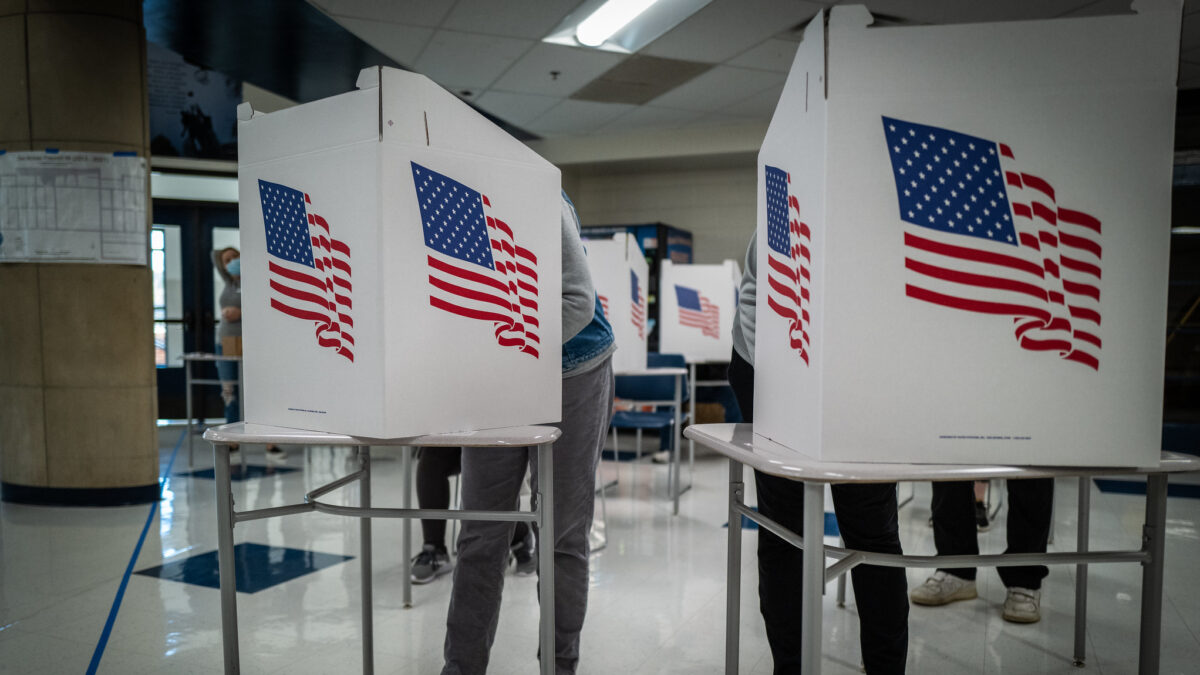Indiana’s term-limited governor, highly unpopular with his GOP base, is pushing an overfunded public health plan that could steal local control from county officials. It’s yet another state-level example of Republican politicians selling out their own voters to bloated and harmful special interests.
The lame-duck governor and several top Republicans in the Republican-controlled legislature are clearly angling to get hired by Big Pharma after leaving public office, thereby using this sweetheart deal to eventually line their own pockets from one of the state’s largest lobbying interests.
Authoritarian orders delivered by Gov. Eric Holcomb and his health commissioner, Kris Box, are one of the reasons Holcomb was booed at his own party convention last June. Those destructive mandates masked kids, hobbled the economy, stunted education, and crushed mental health. Yet Holcomb now wants to increase the influence of this inept state health bureaucracy with an expensive plan designed to centralize more power at the state level. The package will incentivize county health departments to give up local control in return for huge wads of cash.
The governor wants the state legislature to give him 29 times the amount they currently provide for the state’s 95 health departments, from $6.9 million per year to $200 million per year. That financial ask alone tells you why Holcomb is not popular with base voters and won re-election with hundreds of thousands of Democrat votes. It is part of a whopping spending plan that even state Democrats can champion.
The governor used a crude formula to come up with his budget: figure out how much less Indiana spends on public health than other states and bring it up to the national average. Holcomb claims, without evidence and in the face of long experience showing government intervention makes things worse, that more government spending will reduce obesity, lower smoking rates, and improve mental health — all areas where his state ranks poorly.
Yet it is unlikely that a giant government model will alleviate complex health problems that doctors already aren’t solving with one-on-one care. Furthermore, the fact that public health did so much damage to mental health with its isolating Covid policies gives the field little credibility.
Holcomb has no intention of just handing over this extra money to the counties in some kind of flexible format. The Governor’s Public Health Commission touts a comprehensive plan that must be signed onto in its entirety. It includes 80-20 fund matching rules (where the state pays the bulk); 10 additional statutory duties; new data requirements; and apparently, obedience to state guidance on controversial issues.
Luke Kenley, one of the commission’s co-chairs, said county commissioners who vote to join the program will be turning over their elected responsibilities to state officials.
“We’ve had these debates, discussions, arguments and fights back and forth about, ‘Well the governor shouldn’t do a mask mandate,’ or ‘The governor is telling us to do this or to do that or something else,’ or ‘What about vaccinations?’ or ‘What about decisions by local officials?’ We’re trying to avoid that kind of a situation by making sure that everybody who’s in the program wants to be in the program,” said Kenley at a committee meeting last summer.
Such remarks make those of us who saw children forcibly masked and quarantined at the direction of the state health department leery of an agreement that could make localities even more answerable to the state on individual health choices.
All county commissioners will be able to vote on whether they want to tie themselves to the state as part of a five-year plan. While Kenley argues the opt-in plan is voluntary, the sheer financial size of the promised funding comes off as more of a bribe, especially for smaller counties with limited tax bases that already have a hard time meeting state requirements. Even independently-minded commissioners, who might balk at the size and scope of the plan, will be hesitant to turn down the money if it makes it look like they don’t care about constituents’ health.
Kenley said about 70 percent of health department funding comes from the local tax base, whereas only 30 percent comes from the state. Kenley’s plan aims to make the state the primary funder.
The governor couldn’t have picked a better salesman for the pricey program, as Kenley is Indiana’s former Senate appropriations chair. He mentored Sen. Ryan Mishler, who currently holds the chairman spot and will be a deciding factor in whether Holcomb’s plan gets funding.
The commission itself seems to know that any county proud enough to say no to the state’s program will crawl back eventually because of the amount of money dangled before local governments. That’s also how the federal government now controls states: bribing them to obey ridiculous, harmful, and bankrupting mandates. It’s a bad model that reduces American self-government.
“There will be some who say that, ‘Autonomously we want to be in control, and we will opt out of this.’ What they’re saying is, we will, over the next four years, fund our health according to state law without your help,” said a commission member at one of the group’s final meetings. “In about two years, they’re going to find out: we can’t do that.”
That comment sparked laughter around the tables. He added the state would have to “lovingly support” counties “through their misdirection.” Kenley offered it might be helpful to educate misguided counties so they realize the brutal situation they may face if they decide to opt out.
That tone of condescension, in combination with the fact that the state still does not acknowledge the damage it did with its Covid orders, should give Indiana legislators pause when determining whether to fund Holcomb’s outlandish request. Without the General Assembly backing them up, county commissioners may get stuck saying yes to even more state control.









